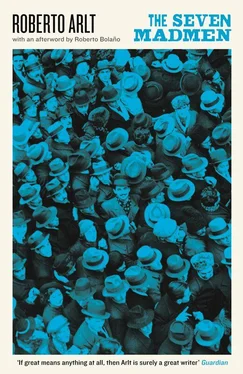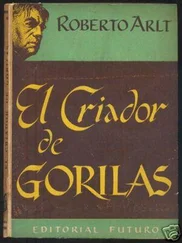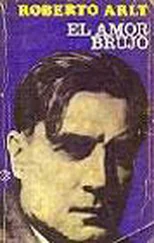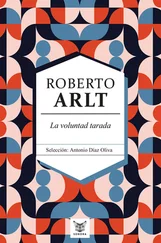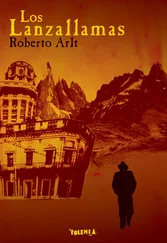“But it’s not you doing this, it’s God, who is in your body.”
Bewildered, Ergueta replied:
“It’s true, brothers … it’s not me … but God who is inside me … how could I, a wretched whoremonger, perform miracles?”
At this the louse-hunter, who was sitting on the edge of his bed, swinging his naked feet, suggested:
“Why don’t you do another miracle?”
“That’s not why I’m here, but to preach the word of the living God.”
The louse-hunter swung one foot up over his knee and said nastily:
“You should do a miracle.”
The deaf-mute put his pillow on the floor, sat on it and declared: “I’m not saying another word.” Stunned by all he saw, Ergueta took his head in his hands. The one-eyed man added amiably:
“Yes, you should bring the dead man back to life.”
“There’s no dead man here!”
The one-eyed man limped over to Ergueta. He took him by the arm and almost dragged him over to a bed opposite, where a tiny man with a round head and an enormous nose lay without moving.
The deaf-mute came over, pursing his lips.
“Can’t you see that he’s dead?”
“He died this afternoon,” the one-eyed man added.
“I tell you this man is not dead,” Ergueta shouted angrily, convinced they were making fun of him. But the louse-hunter leapt from his bed and, going over to the other one, bent over the little man with the round head. He pushed the body until it fell to the ward floor with a dull thud, stuck between the two beds with its legs in the air, like the fork of a newly pollarded tree.
“Now can you see he’s dead?”
Their nightshirts billowing in the wind, the four madmen stood around the upturned body, silhouetted against the blue rectangle of moonlight.
“See that he’s dead?” the bearded man repeated.
“Do a miracle for us,” the one-eyed man begged Ergueta. “How can we believe in Him if you don’t perform a miracle? What’s it to you?”
The deaf-mute nodded his head rapidly, egging Ergueta on. Ergueta leant sombrely over the body, and was about to pronounce the life-giving words when suddenly the walls of the room started to spin before his eyes, a dark wind howled in his ears, and he just had time to catch sight again of the three madmen silhouetted in the blue rectangle of moonlight, their nightshirts ballooning out in the wind, before he fell down a slope through the whirling darkness, into unconsciousness.
For almost an hour Erdosain remained at Hipólita’s feet. His earlier emotions were blurred in his present somnolent state. He felt remote from all that had happened during the day. Anguish and resentment hardened in his heart like mud in the sun. Yet he lay there without moving, overcome by the desire for sleep that weariness instilled in him. And he was frowning deeply. His other great fear, the fear of finding himself standing like a lost ghost beside a granite dike, pierced the mist and darkness. The grey waters formed layers that swirled in different directions. Iron-clad whaling boats took indistinct masses of people to distant shores. There was a woman decked out like a coquette: she wore a diamond choker, and sat with her head in her bejewelled hands at a bar-room table. While she was talking, Erdosain scratched the tip of his nose. When he searched for the reason for this, Erdosain remembered that four young girls had appeared, wearing knee-length dresses, and with straw-coloured hair dishevelled round their horsy faces. As they passed by him, they held out a tin cup, which made Erdosain wonder: “Can they earn enough to eat by begging like that?” Then the star, the coquette, with the diamonds sparkling beneath her chin, replied that yes, the four girls lived from begging, and in her most alluring voice embarked on a story about a Russian prince whose way of life did not at all fit in with that of the four girls, try as she might to fix things. It was only then that Erdosain realised why he had heen scratching his nose while the gorgeous creature had been talking.
His sadness increased when he saw the silent crowds of people look back as they climbed aboard an endless train, which had all its shutters down. No-one asked about destinations or stations on the way. Twenty yards from the track stretched a dark desert of dust. Erdosain could not see the locomotive, but heard the screech of chains as the brakes were let off. He could run, the train was moving off slowly, he could reach it, climb the steps and stand for a moment on the platform of the last carriage, watching as it picked up speed. There was still time for him to get away from this grey solitude, devoid even of dark cities … but, held in the claws of his immense despair, he stood watching, a sob in his throat, as the last carriage pulled away, all its windows firmly shut.
When he saw the train round the curve and head into the wall of fog, he realised he had been left on his own for ever in this ashen desert, that it would never return but keep rolling sullenly on and on, its carriage windows shut tight.
He slowly lifted his head from Hipólita’s lap. It had stopped raining. His legs were freezing, and his joints ached. He looked at the face of the sleeping woman, barely visible in the faint blue light of day seeping in through the door-panes, and stood up as carefully as he could. The four little girls with their horse faces and straw-coloured locks were still with him. He thought: “I should kill myself …” but then, noting the red glint of the sleeping woman’s hair, his ideas took on a more sinister bent. “She must be ruthless. And yet I could kill her …” He felt for the revolver butt in his pocket. “It would only take one bullet in the head. The bullet’s made of steel, it would only make a tiny hole. Of course, her eyes would be blown out of their sockets and her nose would probably pour blood. Poor soul! She must have suffered so much. But I’m sure she’s cruel.”
A stealthy malice made him lean over her. The longer he looked at her asleep, the wilder, more crazed his expression became. In his pocket, his hand cocked the gun. Then a peal of thunder burst in the distance, and the strange madness shrouding his brain was lifted. Erdosain felt for his coat as quietly as possible, shut both sides of the door with great care to avoid them creaking, and stepped out of the room.
As he reached the bottom of the stairs, he realised with satisfaction that he was hungry. He headed at a shambling run for one of the countless grills around the Spinetto market.
The moon was riding the purple crest of a cloud, and in the moonlight whole stretches of the pavement looked as if they were covered in zinc sheeting; the puddles glinted as though silver coins were hidden in their depths, the rainwater gurgled and swirled in the gutters, licking at the granite kerbs. The pavement was so wet it looked as though all the blocks were recently smelted lead.
Erdosain dodged in and out of the blue shadows that fell between the rows of buildings. The smell of damp lent a kind of maritime desolation to the morning solitude.
There was no doubt about it, Erdosain was not in his right mind. He was still worried about the four horse-faced young girls and the sinister sea with its iron waves. The stench of burnt cooking oil belching from a yellow-painted café door made him feel nauseous and so, changing his mind, he decided to aim for a brothel he remembered in Paso. When he got there, he found the door already locked, so, at a loss, shivering with cold, his mouth full of a bitter taste of copper sulphate, he went into a nearby café that had just raised its metal shutters. After a long wait, they served him the tea he had ordered.
He thought about the sleeping woman. He half-closed his eyes, leant his head back against the wall, and surrendered utterly to his despair.
Читать дальше
